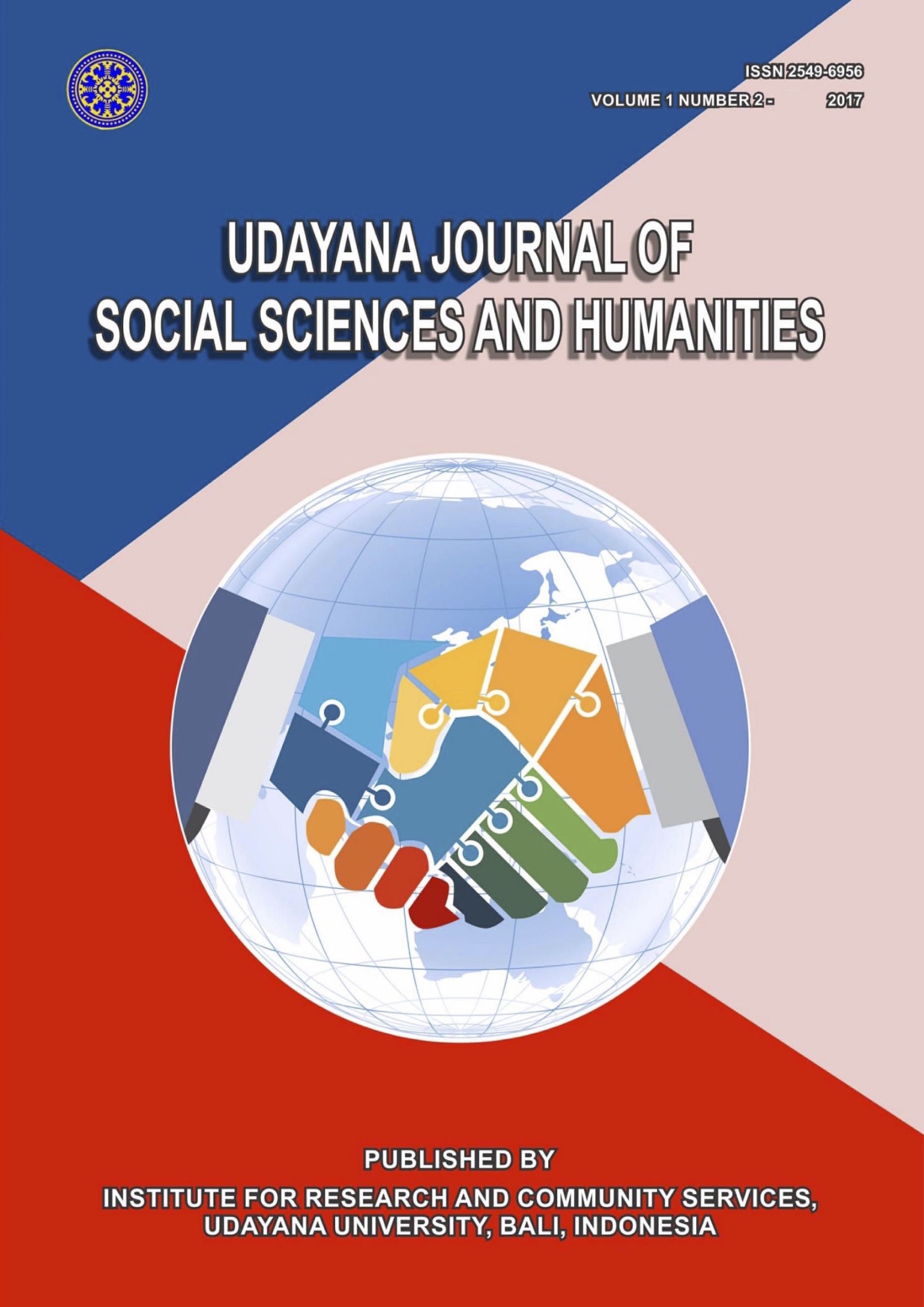Model of Nature Tourism Development and Its Economic Contributions for Local Communities in Peliatan Village, Ubud, Bali
Abstract
Aims of this study were identifying the potential of nature tourism, assessing the economic contribution to the local community and formulating a model of eco-tourism development in Peliatan village, Ubud, Bali. Results of this research showed that the potential of nature tourism were: natural landscapes, rivers, water springs, rice fields, flora and fauna. The nature tour activities that can be developed were as follows: trekking, cycling, rural tourism, outbound travel, camping, educational nature tours, and flora and fauna viewing. Source of contribution directly to the local economy were from jobs as tour guides, ticketing, palet parking, selling Balinese food, from stalls / restaurants, lodging/accomodation, souvenirs, camping, and outbound activities. The ability of saving money has made it possible for the parents to pay more money for higher education of their children. Tourism activities have contributed indirectly on increasing income for the regency in general, and also have attracted investors to build hotels. Model development of nature tourism in Peliatan village was as follows: For SO Strategy: develop new attractions, developing cooperation with investors for development of natural tourist attractions, penetrating foreign markets (for nature), in cooperation with travel agents, development tourism events, and development of micro-enterprises. The WO strategies were such as: improving the quality of the environment, nature conservation, training guides, providing more interesting information for visitors, arranging nature travel packages, developing public-private partnerships, and mapping of potential tourist destinations. For ST Strategies including: reforestation, erosion control, analyse behavior of tourists, waste management, protection of the area, which was undertaken in cooperation with tourists, and stakeholders, as well as to ensure the safety. For WT Strategies including: to do counseling, to formulate CoC, strengthening organizations, preventing environmental degradation, certification of tourism workers, community development, as well as research for nature tourism.






